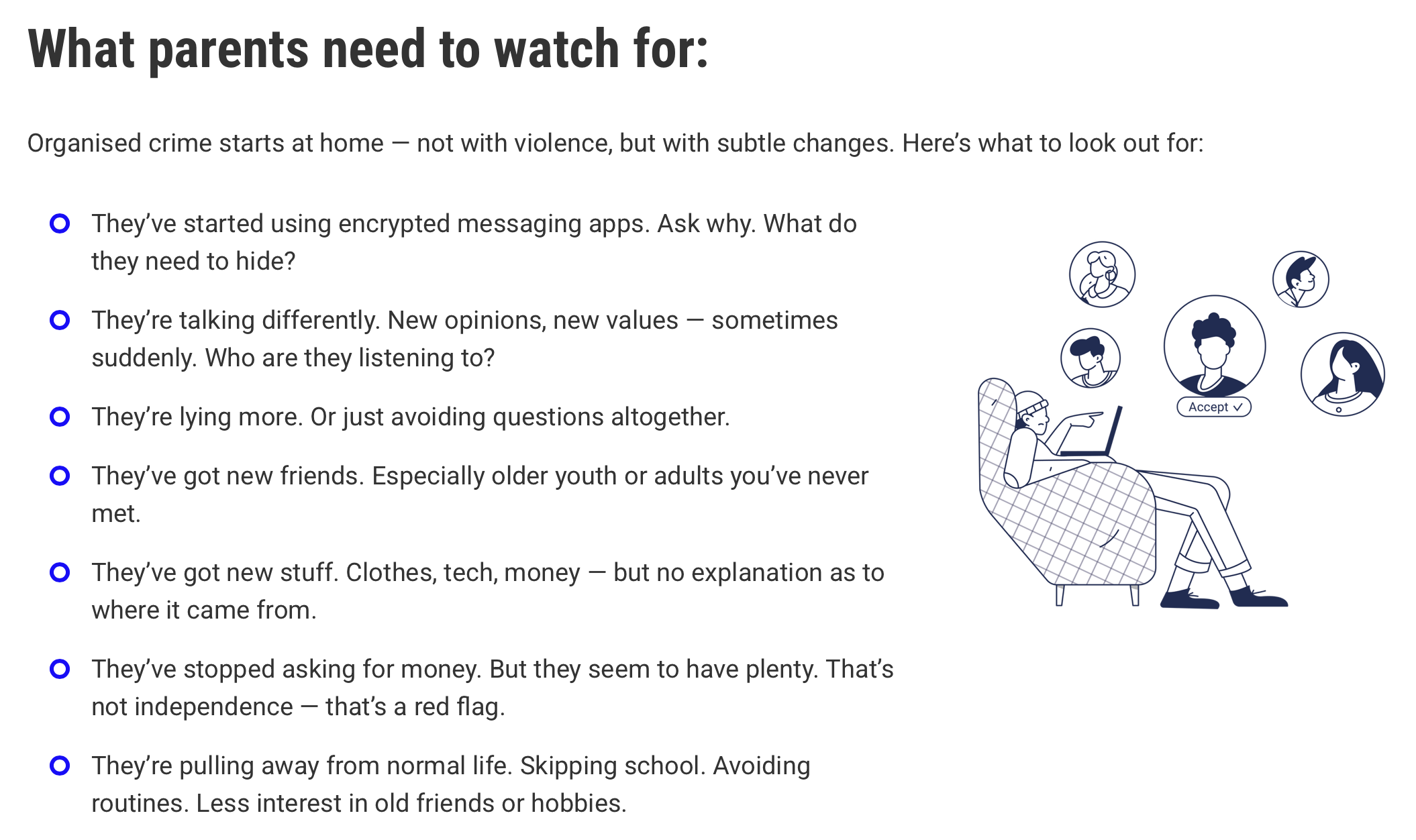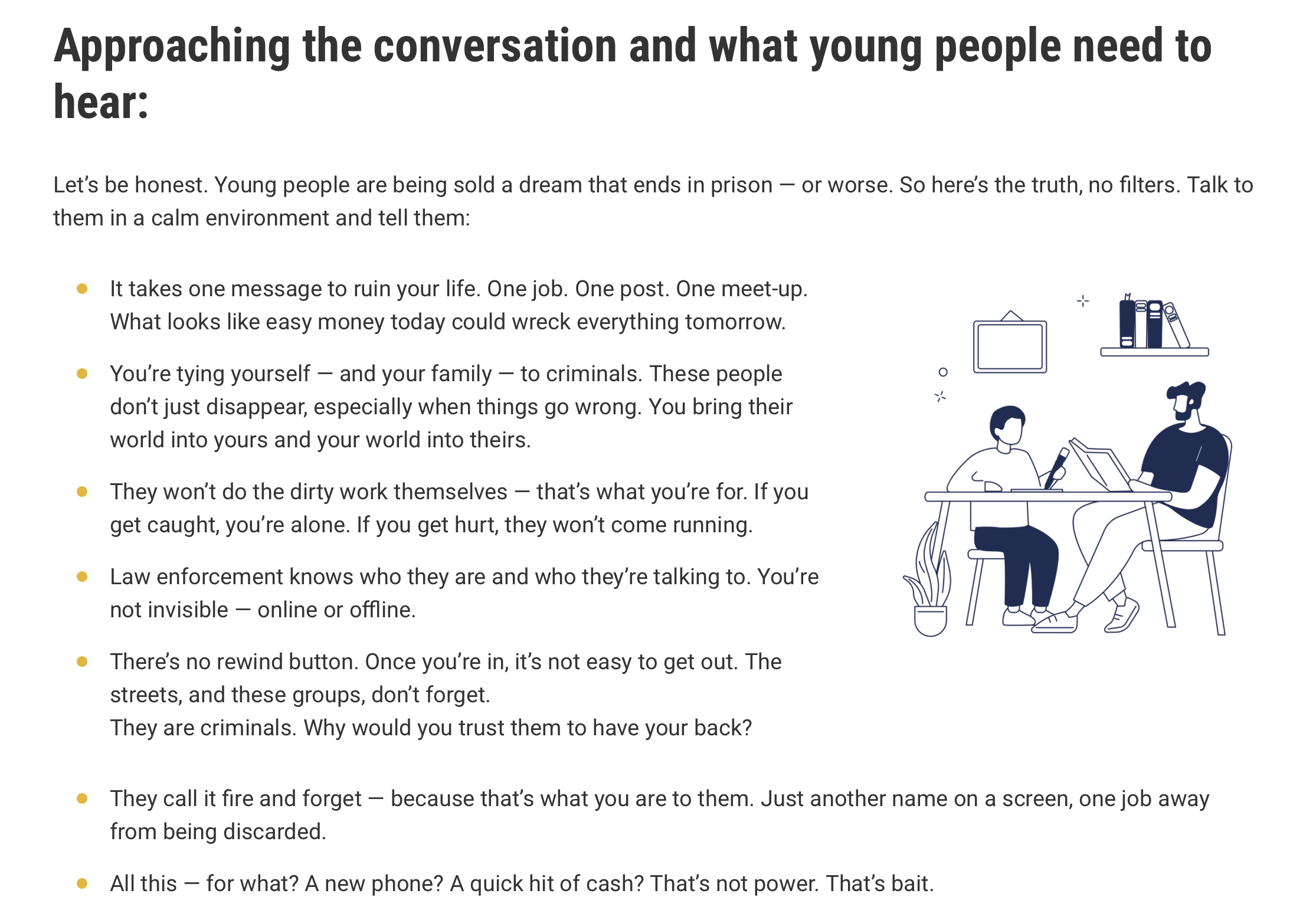Europol declares war on digital "violence-as-a-service" underworld
Criminal masterminds are openly recruiting young people on social media and gamifying vicious violent acts.

Europol has launched a new Operational Taskforce which will battle violence-as-a-service - a "rising trend" involving the digital recruitment of young thugs into serious organised crime.
Crooks are using open channels such as social media as well as hidden dark web marketplaces to rent out their services, enabling customers to hire hoodlums to carry out assaults, deliver terrifying threats or even perform contract killings.
These "criminal service providers" often outsource the actual violence to teenagers or people in their twenties, leaving them at risk of being hurt or ending up in jail.
Vicious acts of violence are often orchestrated totally remotely, with young people recruited and instructed online without meeting their villainous overlords.
"There is a clear demand from the criminal underworld for youngsters willing to carry out violent tasks — and a supply of vulnerable young people being groomed or coerced into doing so," Europol warned.
"Young people are being deliberately targeted and recruited to commit a wide range of crimes — from drug trafficking and cyber-attacks to online fraud and violent extortion."

READ MORE: Europol warns that cybercrime is "destabilising" society
Recruitment relies on "highly strategic" tactics that exploit young people's vulnerabilities and glamorise a luxurious, high-earning, violent lifestyle.
Social media platforms and messaging apps are used to reach young people using memes, coded language and even gamified tasks.
"In return for money, status or a sense of belonging, [young people] are drawn into criminal schemes that are both violent and transnational," Europol continued.
"This is not random – it is calculated. By using young perpetrators, criminal networks seek to reduce their own risk and shield themselves from law enforcement."
Digital underground: The new face of organised crime
Cops have also released an intelligence notification which outlines how criminal networks "lure young people into violence and crime: as well as an awareness guide with a list of warning signs for parents.
"The recruitment of minors into serious and organised crime and terrorism is not a new phenomenon; however, it has increasingly become a tactic used by criminal networks to avoid detection, capture, and prosecution," Europol reported.
"In recent years, this trend has expanded across more countries, with recruitment methods evolving and minors being tasked with violent acts such as extortion and killings."

How crime became cool
Europol revealed that minors are now involved in over 70 % of criminal markets, which also enable cybercrime, online fraud, drug trafficking, migrant smuggling, and property crime.
Kids are known to play an active role in drug trafficking, primarily in the cocaine and cannabis markets, with "lesser involvement" in synthetic drug and heroin networks.
These criminal networks employ minors aged with an average age of between 13 and 17 years old for roles including street dealing, drug transportation, operating narcotics warehouses, picking up drugs from shipping containers and stealing drugs from other criminals in so-called "rip off" attacks.
"The use of minors for rip-off activities was previously rare to non-existent, but now comprises nearly 10 % of cases in some countries," Europol warned. "These young operatives are moved across regions or cities, limiting their visibility to local law enforcement and decreasing the likelihood of arrest."
Glamorised and gamified violence
Minors are often drawn into the underworld by posts which glamorise crime and offer "substantial financial incentives" ranging from a few thousand euros to as much as 20,000 euros for killings.
Young hoodlums for hire rarely come into contact with the masterminds of the criminal networks, often working remotely with limited knowledge of the structure of the organisation they are part of. This makes them disposable and low-risk foot soldiers who will be unable to provide meaningful intelligence to cops if they're arrested.
"In several cases, violent attacks committed by minors are orchestrated remotely by a criminal service provider," Europol continued. "They act via a network of coordinators who deliver assignments and instructions via messaging apps. In turn, runners provide weapons and ammunition, and transport the minors to the scene of the attack."

How do criminals cover their tracks?
Criminals are able to use encrypted messaging services and anonymous groups on social media to communicate in relative secrecy, often setting messages to self-destruct, talking only in limited-access groups and carefully deleting conversations to avoid leaving incriminating evidence.
"Apps used by minors provide direct communication channels that eliminate the need for physical meetings," Europol added. "Many young people are active on these platforms, which allows recruiters to target a large audience with minimal effort.
"Criminals attract minors by using phrases such as 'easy money' or 'quick cash' to frame illegal activities as attractive opportunities. As a result, minors may perceive these interactions as harmless or low-risk, making them more likely to engage with these online recruiters."
Criminal networks also use slang, emojis, and coded phrases to communicate with minors in ways "that are both appealing to them and difficult for outsiders to understand".
Examples include trees to represent cannabis or snowflakes for cocaine.
Illegal tasks are called “challenges” or “missions" which has the effect of making them more "engaging and less intimidating for minors", Europol revealed.
"This approach, known as “gamification,” resonates with a younger audience familiar to social media challenges and online gaming," it added. "By framing these activities as part of a game or competition, criminal networks desensitise minors to the risks and encourage participation without revealing the true nature of the crimes involved.
"Sometimes, video games are used as instructional tools for teaching shooting or violent techniques. In some cases, recruiters may even offer rewards for completing specific tasks, enhancing the appeal of criminal involvement and fostering a sense of accomplishment among young participants."
The new taskforce is called OTF GRIMM and is led by Sweden. It brings together law enforcement authorities from Belgium, Denmark, Finland, France, Germany, the Netherlands, and Norway, with Europol providing operational support, threat analysis and coordination.
This includes coordinating cross-border intelligence sharing, mapping recruitment and monetisation tactics, targeting service providers that enable on-demand violence, and working with tech platforms to disrupt online recruitment.
Europol will play a central role in this effort, offering data analysis, operational coordination and support for joint investigations to ensure a unified European response.
Do you have a story or insights to share? Get in touch and let us know.




